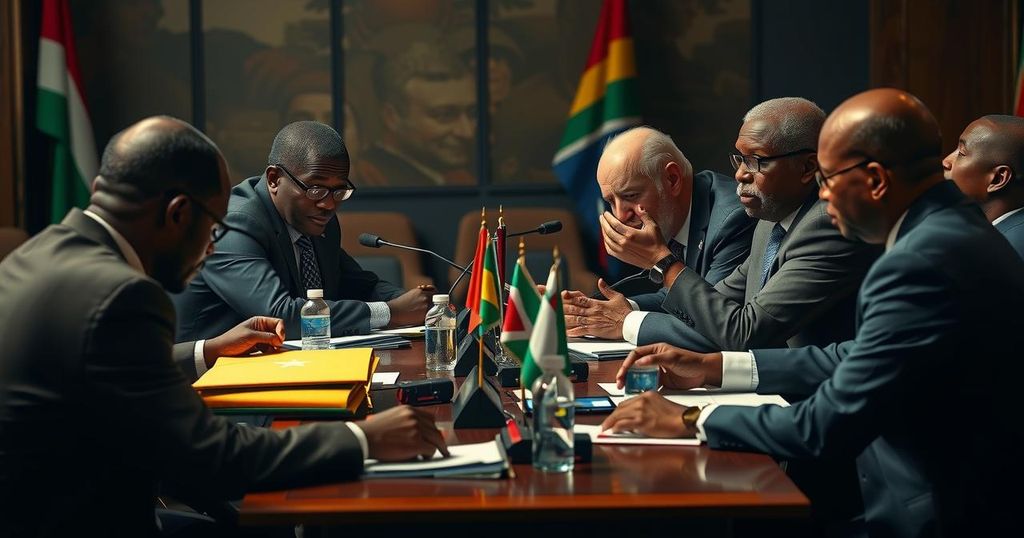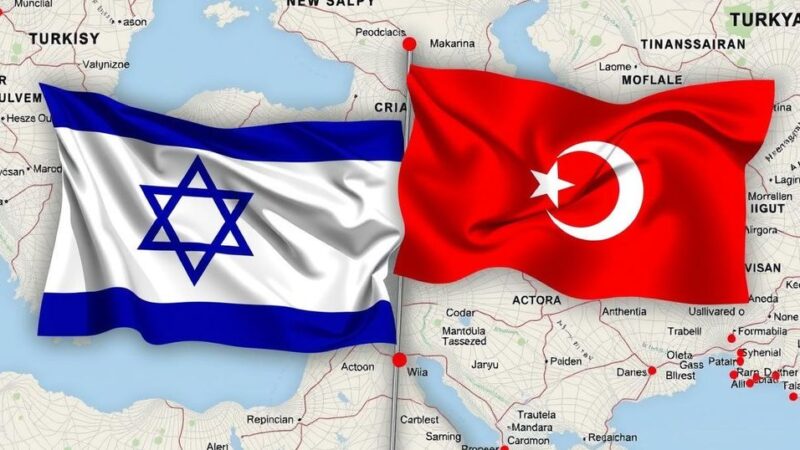South Sudan peace talks have resumed in Kenya after a four-month break following the sacking of a government delegation. The negotiations aim to address concerns of opposition groups not included in the 2018 peace agreement. With elections postponed and existing grievances regarding human rights and economic turmoil, both sides are urged to honor previous commitments to avoid further disintegration of the nation.
The peace negotiations in South Sudan have recommenced in Kenya after a four-month hiatus following the dismissal of the previous government delegation. These discussions aim to bridge the divide between the South Sudanese government and various opposition factions, particularly those not included in the 2018 peace agreement which concluded a devastating civil war that claimed over 400,000 lives. Despite an agreement on a “commitment declaration” for peace reached in May, the initiative faltered due to the reshuffling of the government delegation by President Salva Kiir, who stated that these talks are not intended to replace the earlier peace accord but to address the concerns of excluded factions.
The current atmosphere is marked by heightened tensions, particularly with the postponement of elections originally set for December 2024 now shifted to 2026, as financial constraints continue to plague efforts in voter registration amidst ongoing economic hardship. The deterioration of oil revenues due to a damaged pipeline in Sudan only exacerbates the crisis. Delegates from both sides have expressed concerns regarding new legislation permitting detention without warrants, emphasizing that such measures violate human rights. In an appeal for collaboration, the chief mediator, Lazarus Sumbeiyo, encouraged a focus on resolving outstanding issues, underscoring the urgency of the moment for the nation’s future.
Pagan Amum, the leader of the South Sudan Opposition Movement Alliance, urged the newly appointed government delegation to adhere to previously established agreements, recognizing this juncture as potentially the final opportunity to prevent further disintegration of the nation. Similarly, Kuol Manyang Juuk, representing the government, emphasized the need for unity in building upon earlier agreements rather than starting afresh, affirming the importance of capitalizing on existing progress. The intricate interplay of negotiations reflects the critical nature of these discussions in steering South Sudan towards stability and addressing longstanding grievances within its political sphere.
The peace talks in South Sudan are a continuation of efforts to resolve a conflict that has deeply impacted the country’s social and economic fabric. The previous civil war, concluded by a peace agreement in 2018, has yet to fully materialize in terms of implementation, leaving unresolved issues among various factions. The resumption of talks is viewed as an essential step towards healing the nation’s divisions and restoring economic stability, particularly as the nation grapples with severe financial challenges and a history of political discord. Recent developments, including the change of delegation and postponement of elections, signal the complex dynamics at play as all parties seek a viable pathway forward amidst humanitarian and governance crises.
The resumption of peace talks in South Sudan signifies a pivotal moment in the ongoing journey towards national reconciliation and stability. With pressures mounting from economic strife and societal divides, the dialogue aims to incorporate the perspectives of previously marginalized factions while addressing serious concerns over new legal measures affecting civil liberties. The commitment of both government and opposition leaders to previous agreements will be crucial in determining the success of these negotiations. Ultimately, productive discussions may offer a lifeline for a country striving to avert chaos and build a more unified future.
Original Source: abcnews.go.com






